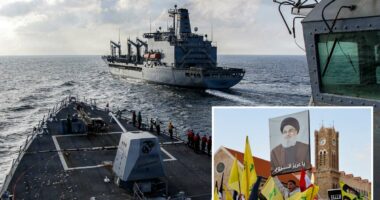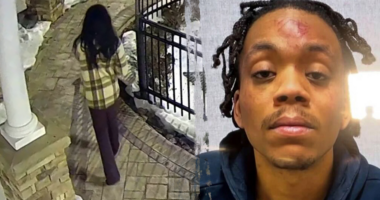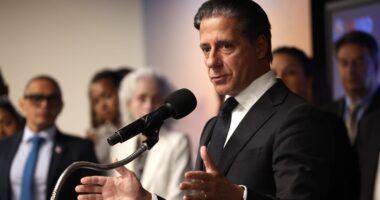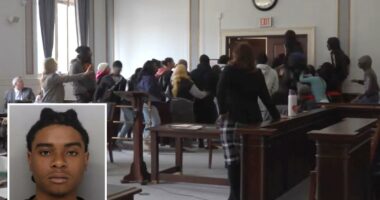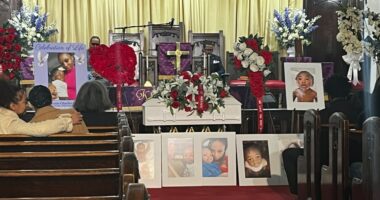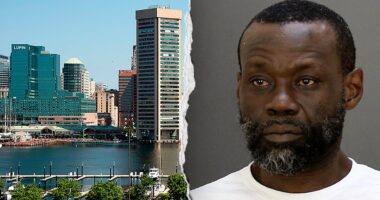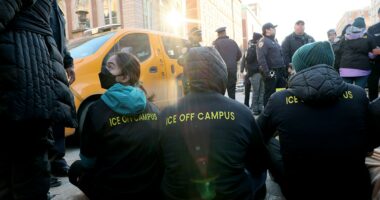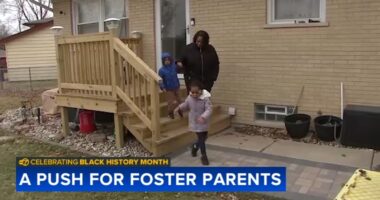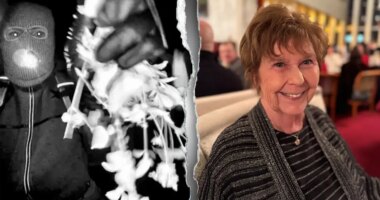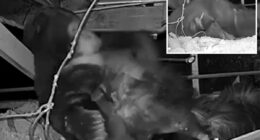Share this @internewscast.com
NEW YORK (AP) — Detained Palestinian activist Mahmoud Khalil was granted the opportunity to hold his one-month-old son for the first time on Thursday after a federal judge intervened to stop the Trump administration’s attempt to keep them separated by a plexiglass barrier.
This visit occurred just before Khalil’s scheduled immigration hearing. Khalil, a legal permanent resident and a graduate of Columbia University, has been held in a Louisiana jail since March 8.
He was the initial individual apprehended under President Donald Trump’s pledged crackdown on protests against the war in Gaza and is among the few who remain in detention as his case navigates through both immigration and federal judiciary processes.
His request to attend his son’s April 21 birth was denied last month by U.S. Immigration and Customs Enforcement.
The question of whether Khalil would be permitted to hold his newborn child or forced to meet him through a barrier had sparked days of legal fighting, triggering claims by Khalil’s attorneys that he is being subject to political retaliation by the government.
On Wednesday night, a federal judge in New Jersey, Michael Farbiarz, intervened, allowing the meeting to go forward Thursday morning, according to Khalil’s attorneys.
The judge’s order came after federal officials said this week they would oppose his attorney’s effort to secure what’s known as “contact visit” between Khalil, his wife Noor Abdalla and their son Deen.
Instead, they said Khalil could be allowed a “non-contact” visit, meaning he would be separated from his wife and son by a plastic divider and not allowed to touch them.
“Granting Khalil this relief of family visitation would effectively grant him a privilege that no other detainee receives,” Justice Department officials wrote in a court filing on Wednesday. “Allowing Dr. Abdalla and a newborn to attend a legal meeting would turn a legal visitation into a family one.”
Brian Acuna, acting director of the ICE field office in New Orleans, said in an accompanying affidavit that it would be “unsafe to allow Mr. Khalil’s wife and newborn child into a secured part of the facility.”
In their own legal filings, Khalil’s attorneys described the government’s refusal to grant the visit as “further evidence of the retaliatory motive behind Mr. Khalil’s arrest and faraway detention,” adding that his wife and son were “the farthest thing from a security risk.”
They noted that Abdalla had traveled nearly 1,500 miles (2,400 kilometers) to the remote detention center in hopes of introducing their son to his father.
“This is not just heartless,” Abdalla said of the government’s position. “It is deliberate violence, the calculated cruelty of a government that tears families apart without remorse. And I cannot ignore the echoes of this pain in the stories of Palestinian families, torn apart by Israeli military prisons and bombs, denied dignity, denied life.”
Farbiarz is currently considering Khalil’s petition for release as he appeals a Louisiana immigration judge’s ruling that he can be deported from the country.
Federal authorities have not accused Khalil of a crime, but have sought to deport him on the basis that his prominent role in protests against Israel’s war in Gaza may have undermined U.S. foreign policy interests.
Khalil is scheduled to appear before that immigration judge, Jamee Comans, for a routine hearing on Thursday. Attorneys for Khalil said it was unclear whether the baby would be permitted to attend the hearing.

